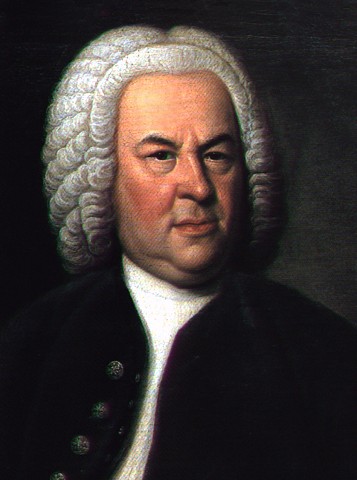Monday, November 26, 2007
Real Lives
November 26 - November 30
READ-ALOUD: Benjamin Franklin Biography
Independent Reading: Biographical and Autobiographical sketches, excerpts.
WRITE: a variety of autobiographical and biographical sketches
Wednesday, November 7, 2007
Wednesday 11.07 Friday 11.09
- Click on the link to access a site we've visited before. Short Stories Link.
- Choose ten (10) stories of your choice. The stories can be children's, mystery, crime, etc. I make it up to you (as I usually do) what to read independently.
- Make a GoogleDoc New Document titled "short stories - NAME".
- Invite me as a collaborator (OlgaSakhno@MSN.com).
- For each story provide the following:
- Title
- Author
- Characters
- Setting
- Plot (Introduction, Climax, Resolution)
- Point of View (see the wall above the bookshelves for help)
- Theme (lesson/moral)
Friday, November 2, 2007
Wednesday 10.31 - Thursday 11.01
Reading/Critical Thinking Objectives:
- Identify extended elements of the plot: Introduction, Rising Action, Climax, Falling Action & Resolution.
- Identify setting and the influence of setting on the Plot.
- Read for details/answer comprehension questions; teacher model re-reading techniques for context clues.
- Make inferences based on common knowledge as well as on repetive details in the text.
- Introduce lexical textual analysis as a basic building block of understanding emotional power of the story.
- Theme is a unifying subject or an idea is a story.
Theme in a short story is usually a lesson or moral that relate to other texts as well as to human nature. The theme of a piece of fiction is its view about life and how people behave. Students brainstormed the theme for "The Cage" and came up with universal ideas relatable to other texts and to human nature.
Writing Objectives/Collaborative Learning - Evaluating a Story
- Entertainment
- Believability - Are the Characters believable? Are the reasons convincing?
- Originality - Are the writer's thoughts original or unique?
- Emotional Power - Does the writing evoke strong emotional response?
Tuesday, October 30, 2007
Tuesday 10.30 - Students Publish Their Versions of Short Story "Victor"
Dad's Point of View:
"I Let out my Feelings" by Hakeem
"How It Happened" by Geoffrey
"My life has gone to pass all because my son is hurt" by Jeffrey
"Miracle" by Francisco
"Father" by Kevin
"My Point of View for Cody" by Marko
"The Feelings of Dad" by Sergio
"When Things Go Bad" by Tania
"Father's Feeling" by Enrique
"Cody's Father" by Alex
Victor's Point of View:
"Suspicion" by Abass
"Old Man" by Ariel
"Victor" by Junior
"The Box" by Juan
"The Day I Made Cody Wake Up" by Brandon
"A True Friend" by Katherine
"Miracles" by Mariel
"Lending a Hand" by Tatiana
"The Visit" by Michael
Monday, October 29, 2007
Wednesday 10.25 - Monday 10.29
Reading/Critical Thinking Objectives:
- Identify basic elements of the plot (beginning, middle, end)
- Identify setting.
- Introduce foreshadowing through characterization and setting.
- Read for details/answer comprehension questions; teacher model re-reading techniques for context clues.
- Make inferences based on common knowledge as well as on repetive details in the text.
- Introduce lexical textual analysis as a basic building block of understanding imagery.
- Point View: class discussion. Who is telling the story? How would the story change if someone else would tell the story? Is it a first person narrative or an omniscient author?
Writing Objectives/Collaborative Learning:
- Class creates a sun characterization chart of main character. Students use this opportunity to collaborate with each other and the teacher and learn how organize information graphically.
- Creative writing: students re-write the story from another character's point of view. They have to conform to the same basic plot and setting and create at least one dialogue.
Thursday, October 25, 2007
Tuesday 10.23.07
Reading/Critical Thinking Objectives:
- Identify basic elements of the plot (beginning, middle, end)
- Identify setting: plot quotes that define setting and discuss how the setting mirrors the basic plot.
- Introduce foreshadowing through setting.
- Read for details/answer comprehension questions
- Read for main idea
- Make inferences based on common knowledge as well as on repetive details in the text
- Make predictions
Writing Objectives/Collaborative Learning:
- Short answers that include quotes from the text.
- In groups, create story maps and character charts. Students use this opportunity to create their own way of organizing information graphically.
- Creative writing: extend the plot; implement setting and characterization as parts of the action.
Monday 10.22.07
Reading/Critical Thinking Objectives:
- Identify basic elements of the plot (beginning, middle, end)
- Identify setting and characters
- Read for details
- Read for main idea
- Make inferences
- Make predictions
- Distinguish between fact and opinion
- Vocabulary/spelling worksheet
Writing Objectives:
- Short answers that include quotes from the text.
- Creative writing excercise that relates to the text.
Bonus homework: cross-curricular review (math & social studies)
Short Stories Unit from 10.22 until Thanksgiving
- Reading
- Writing
- Speaking and Critical Thinking
- Vocabulary and Literary Convention
- Monthly Activity
- Technology
Culminating Exam (Performance Objective): Read a short story and identify literary elements.
Tuesday, October 9, 2007
Global Issues Newsreport Due 10.12.07
Read a news story of your choice about any of the global issues (global warming, AIDS/HIV, terrorism, cancer, etc.) and make a comment following the guidelines below:
- The article has to be about CURRENT GLOBAL events.
- Indicate the source of information.
- Give a short synopsis of a story.
- If you copy the exact words of the article, use quotations.
- Give your personal opinion about the issue.
- Use Standard American English writing conventions.
Wednesday, September 26, 2007
News Report Due 10.02.07
- The article has to be about CURRENT events.
- Indicate the source of information.
- Give a short synopsis of a story.
- If you copy the exact words of the article, use quotations.
- Give your personal opinion about the issue.
- Use Standard American English writing conventions.
Friday, September 21, 2007
Due September 28
You will maintain a reading journal throughout the semester for your independent reading. The reason I ask you to keep a journal is to learn the foundations of literary analysis and literary elements while working with the text with which you are comfortable.
Due September 28 are the following journal entries:
- Title (" __ ")
- Author (Capitalize First and Last Name)
- Setting (place/time)
- Characters: start a T-chart. Left column - name of the character. Right column: notes/quotes (discussed in class).
- Plot summary.
- Brief review (if finished).














